For our first Alumni Spotlight, we spoke with the founder and CEO of SaveLIFE Foundation, Piyush Tewari. Piyush turned tragedy into a relentless quest to save lives on India’s roads, which are some of the most dangerous in the world. Piyush has been the driving force behind the groundbreaking Good Samaritan Law, which provides bystanders the safety from legal and procedural hassles in the event that they step up to help road crash victims. Piyush graduated from the Harvard Kennedy School with a Masters in Public Administration in 2017.
Mittal Institute: Piyush, can you explain how you got the idea to start SaveLIFE Foundation – what was the motivation behind this idea?
Piyush Tewari: On April 5, 2007, I lost a young family member to a road crash. That was the first time when I learned how significant the problem of road crashes in India was. In this particular case, my cousin was on his way back from school when he was hit by a vehicle. I was told by witnesses that he lay on the road for an extremely long period of time before getting any assistance. He eventually passed away at the scene.
When I learned about the circumstances surrounding his death, I couldn’t wrap my head around it. I decided to learn more about the issue by taking time off work and travelling across the country, where I met with lawyers, police officers, doctors and road crash victims’ families to get a better understanding of the situation.
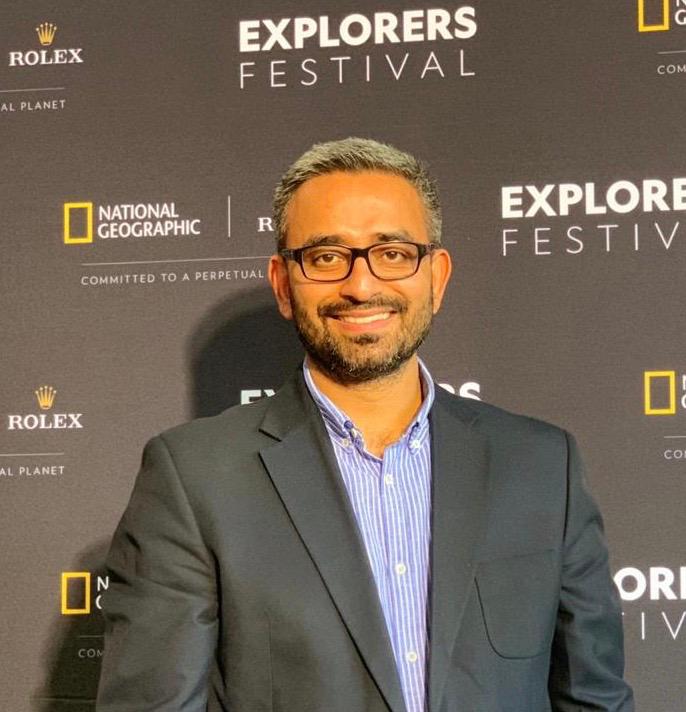
Piyush Tewari, Founder, SaveLIFE Foundation.
I discovered three main things: firstly, in that year alone, India had surpassed China to become the country with the most road crash fatalities in the world. Secondly, I learned that over a million people had been killed in road crashes in the previous decade. Thirdly, I discovered that 50% of those who died in road crashes suffered from treatable injuries. This meant that they could have been saved had they received the proper and timely care. This information motivated me to establish SaveLIFE Foundation as a solution to this extremely serious global concern.
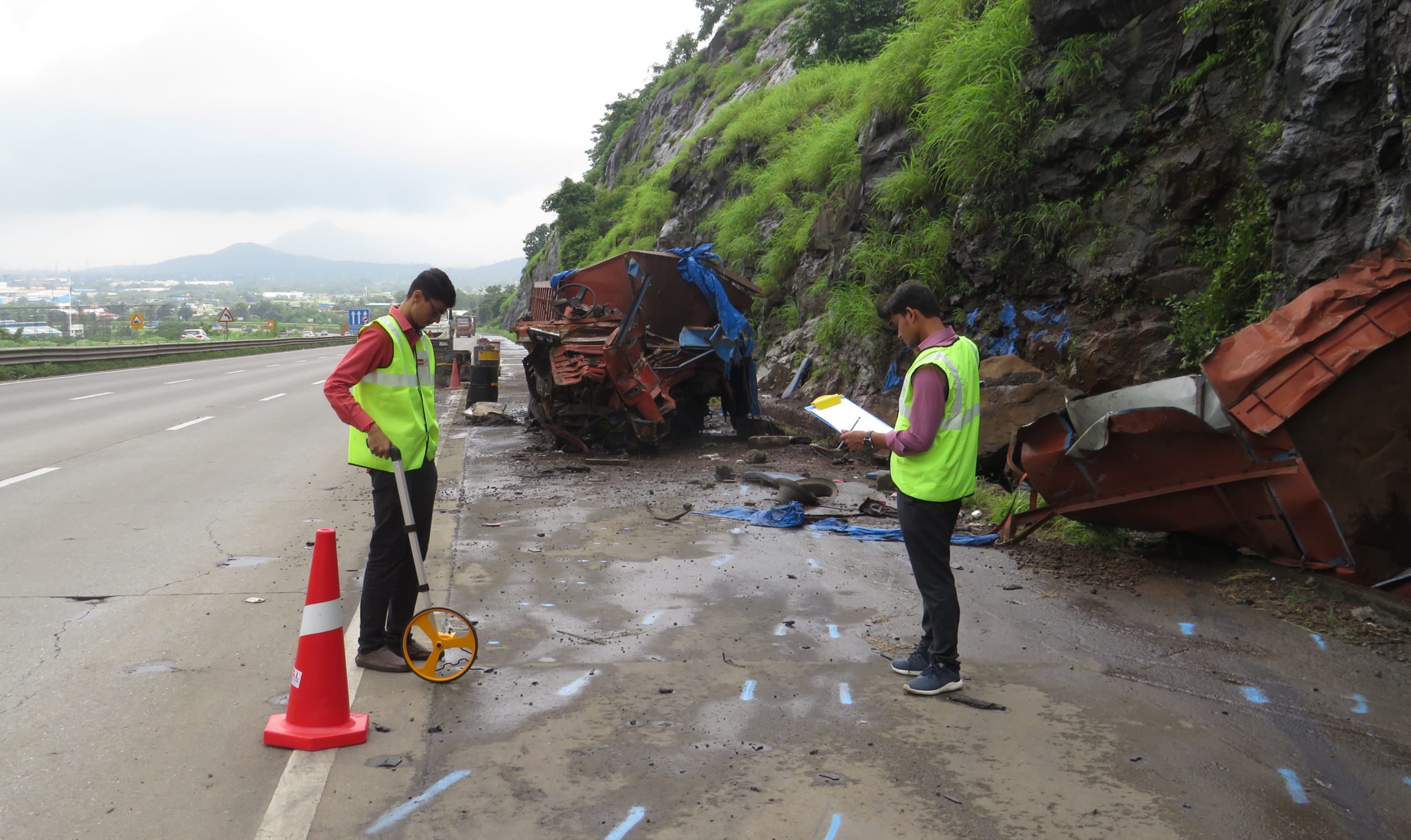
Over the past decade, over a million people have been killed in road crashes in India | Image courtesy of SafeLIFE Foundation.
Mittal Institute: SaveLIFE Foundation has been operating now for over 14 years. What do you see as some of its greatest impact on road safety in India? What are you most proud of having achieved over the years? What have been some of the greatest achievements of the Foundation since its inception?
Piyush Tewari: SaveLIFE Foundation was founded in 2008, and I moved full time to it in 2011. Over the course of these years, our most significant impact has been securing for India the Good Samaritan Law, which legally insulates those who come forward to help injured persons from any ensuing legal or procedural hassles and any kind of intimidation by the authorities. The idea behind securing this law was to create a conducive environment that encourages people to come forward and help the injured. I hope that in the next few years we will see a wider implementation of the Good Samaritan Law, leading to more lives being saved.
The second thing I’m most proud of is our work against trucks carrying protruding rods–a practice that was killing close to 10,000 people every year in rear-end collisions. In 2013 we petitioned the Supreme Court of India, requesting a ban on this practice. In 2014 the Government of India struck down a provision in the Central Motor Vehicle Rules (CMVR), 1989, allowing such protrusions. Ever since the ban came into effect, we have seen a drastic reduction in both the practice of trucks carrying protruding rods and the subsequent number of fatalities resulting from it. While we still do see trucks carrying protruding rods, they are much fewer in number as compared to earlier.
The third thing that I am most proud of is our Zero Fatality Corridor Model, which is being deployed on some of the most dangerous stretches of roads across the country. The scientific interventions carried out within the ambit of our Zero Fatality Corridor Model are deeply rooted in data science and evidence, and work towards reducing crashes, injuries and fatalities on these stretches. Currently, we are working with the Ministry of Road Transport and Highways (MoRTH) to deploy the zero Fatality Corridor on the 15 most dangerous highways across india.
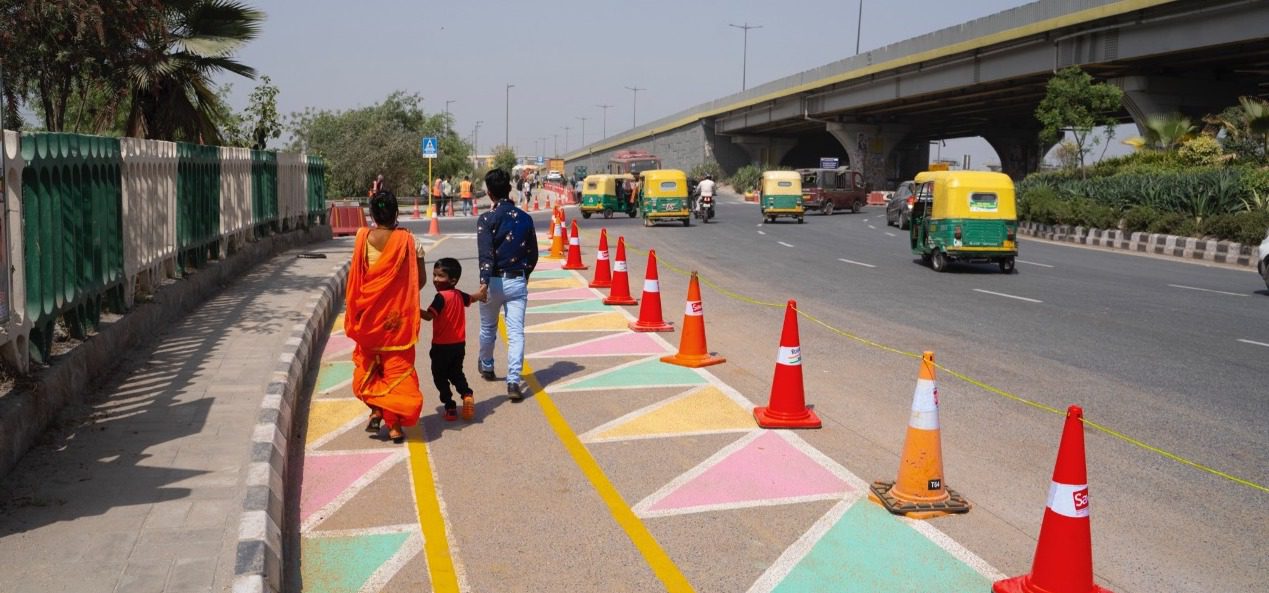
Strategic roadway designs in Delhi by the SafeLIFE Foundation.
Mittal Institute: In 2016, you played an instrumental role in the passage of the Good Samaritan Law. This is an incredible achievement. Could you elaborate on the hurdles you faced along the way? Is there any other law that you want coming into effect or policy changes that would benefit road users in India?
Piyush Tewari: In 2012 SaveLIFE Foundation petitioned the Supreme Court of India, requesting a comprehensive Good Samaritan Law that would protect anyone who comes forward to help a road crash victim. Initially we faced significant hurdles because this was a new idea, and there was resistance to our requested change. Some of the country’s top lawyers were opposing us in the Supreme Court. We also met significant resistance from the police forces as the changes requested translated into a portion of their powers with respect to questioning around road crash incidents being taken away.

Piyush Tewari speaks with local law enforcement.
Eventually, we were able to prove in the Supreme Court that preservation of life is constitutionally paramount and there should be no procedure or process that hinders it. This includes police, hospital and court procedures. The Supreme Court eventually held that preservation of life is paramount and gave insulation to people from issues that were proving to be an impediment against helping road crash victims, such as, police questioning, intimidation, harassment, detention at hospitals and court appearances, among others.
In 2016, after India’s Good Samaritan Law was passed, SaveLIFE Foundation began working with the Government of India on revising the country’s existing Motor Vehicles Act, 1988. This revised Motor Vehicles Amendment Act, 2019 introduced provisions for child safety; provisions to hold road contractors accountable for badly-built roads; forensic crash investigations; and upgraded fines (which hadn’t been updated since 1988!).
In terms of the next policy changes, SaveLIFE Foundation is working on the Right To Emergency Care law, essential for the country because emergency care is not limited to Good Samaritans or ambulances; instead, emergency care starts from the moment an incident takes place and includes the ability to call for help, bystander care, a competent ambulance network and care facilities, followed by adequate in-hospital care. In India, these different areas are currently disjointed and lack integration. In many parts of the country, neither are there dedicated phone numbers that can be dialed in the event of a road crash nor are adequate number of well-equipped ambulances or hospitals.
The Right To Emergency Care law will ensure that each part of the country has adequate arrangements to provide life-saving care to those who need it and that they are not refused treatment by hospitals and medical facilities. We are also working on a policy to institutionalize our Zero Fatality Corridor Model, with the intention of codifying all our work pertaining to it, to make it scalable and replicable.
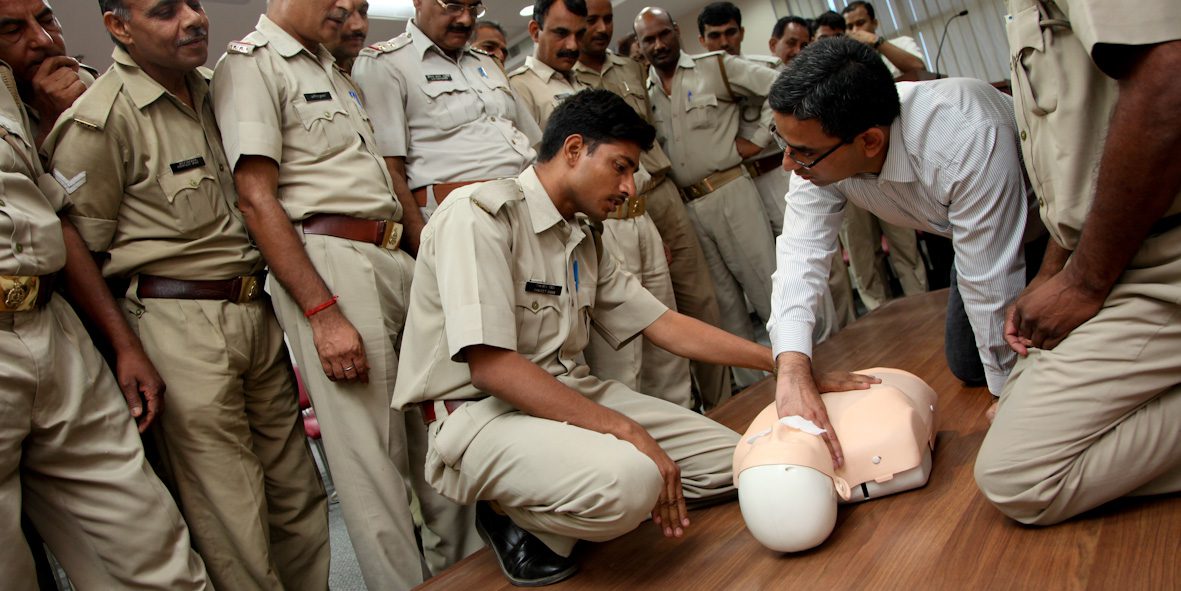
The Right to Emergency Care law ensures that each part of the country has adequat arrangements to provide life-saving care to those who need it.
Mittal Institute: SaveLIFE Foundation has expanded to 12 states across India. What’s next for the organization?
Piyush Tewari: In 2021, SaveLIFE Foundation entered into a partnership with the Ministry of Road Transport and Highways of the Government of India, to scale our Zero Fatality Corridor Model to 12 states in the country. In these states are the 15 deadliest highways in India that account for 85% of all road crash fatalities. We have now deployed the Zero Fatality Corridor Model in at least one highway in each state and will be scaling it further. Our current focus is scaling the Model throughout India and institutionalizing it so that going ahead, individual states can deploy it by themselves. Our next goal is to take the Zero Fatality Corridor Model global. To this end we are looking at other countries in South and Southeast Asia, East Africa and Latin America. Our goal is to be an India-based global non-profit, working across the world on improving road safety and trauma care.
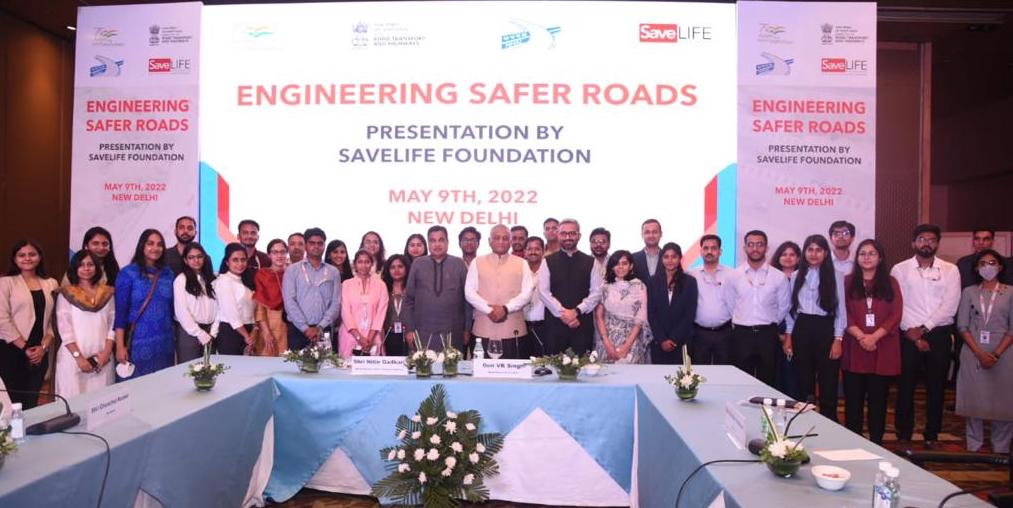
The SafeLIFE Foundation presents to local stakeholders on “Engineering Safer Roads.”
Mittal Institute: What advice would you give to budding entrepreneurs who want to make an impact in India?
Piyush Tewari: I would suggest that it is extremely important to deep dive into the problem. Unless you understand the genesis of the problem, you can’t really solve it. For example, a lot of people blame India’s huge road crash fatality numbers on its supposed high number of bad drivers. The question here should be, “Why do we have such fractured licensing and training systems in existence in the first place?”
The moment you start exploring the root of the problem, you start understanding it. So no matter what your issue is–say, climate change, water and sanitation or women’s safety–exploring the genesis of the issue is extremely important. Doing the arduous groundwork is a rigorous research process that takes time and eventually helps in finding the right solution.
The second piece of advice I would give budding entrepreneurs is: don’t give up! You will face tremendous challenges, but also will find a lot of support. I have been lucky to meet government officials, private sector professionals, academicians, and individuals in international institutions, all of whom came together to nurture the idea of SaveLIFE Foundation. Never fear not finding support; as you move along your journey, more people will join you and your tribe will only grow into a bigger, better force.
Mittal Institute: How did your time at Harvard influence your current work at SaveLIFE Foundation?
Piyush Tewari: In 2016, following the passage of the Good Samaritan Law, I decided to pursue a Masters program at the Harvard Kennedy School with the intention of learning how to take my vision of making roads safer for all kinds of users globally. My time at Harvard gave me much more than this learning, and transformed me in multiple ways. One of the most important things I learned there was how to ask the right questions and not just give the right answers. It is the right questions which lead us to the answers we are looking for, and this particular learning has helped me tremendously ever since, irrespective of the problem that I am dealing with. At the Kennedy School not only did I learn the fundamental approach to dealing with problems and finding their solutions, I also built an amazing network that has been extremely encouraging and supportive ever since.
Not only was my primary aim of finding ways of going global with my mission achieved at the Kennedy School, my experience there was extremely transformational. To this day, every time that I am confronted with concerns and am debating ideas, I instantaneously return to my learnings at the Harvard Kennedy School and approach them using a new perspective. I believe this is the most profound impact that the Kennedy School has had on me.
Follow our Alumni Spotlight, a monthly series that will feature Harvard alumni from across South Asia doing pioneering and groundbreaking work in a wide range of fields. Email us with “Spotlight” suggestions at mittalsai@fas.harvard.edu.
